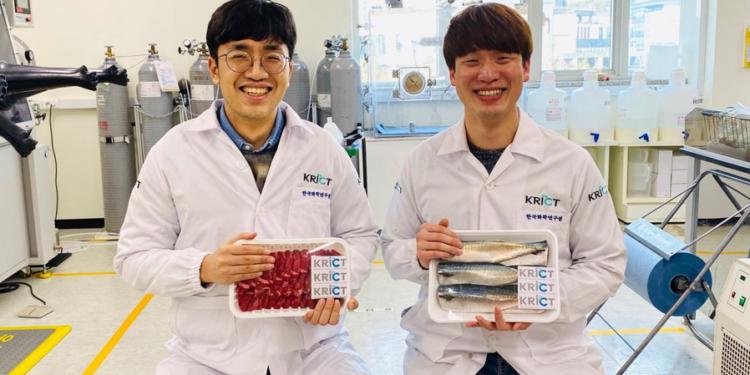The Korea Research Institute of Chemical Technology (KRICT) developed a cold-chain safety sticker that indicates if food products such as meat, fish, vegetables, and fruits become spoiled or mishandled during delivery or storage.
Korea Institute of Chemical Technology is a part of the National Research Council of Science and Technology.
A research team from the Research Center for Bio-based Chemistry of KRICT invented the nanofiber-film sticker technology. The team published the study in the Advanced Materials Online journal with the title “A Self-Healing Nanofiber-Based Self-Responsive Time-Temperature Indicator for Securing a Cold-Supply Chain.”
The KRICT designed the cold-chain safety sticker to prevent the occurrence of food poisoning from spoiling food. The technology is becoming critical as food deliveries are becoming more popular amid the coronavirus spread.
Safetry Sticker Technology
The core technology of the safety sticker lies within its nanofiber film. At low temperatures, the film stays opaque due to its stable structure, where thin threads intersect one another, scattering light. However, when exposed to temperatures 10°C or higher, the nanofiber structure collapses, allowing light to pass through the film. The sticker’s thin threads melt, thus making it appear transparent.
KRICT researcher Dr. Oh Dong-yeop said that once the sticker stays transparent, it would remain transparent. It shows an image displaying the status of the food, and if refrigerated again, cannot return to its original opacity.

The research team could also control the time when the sticker could become transparent. The stickers would become transparent after a minimum of 30 minutes or a maximum of 24 hours of exposure to room temperature, depending on the thickness of the nanofibers. This feature would allow distributors to choose from different stickers for different types of products.
The nanofiber-film sticker costs about 12 won (1 cent) to manufacture. The research team said that the technology could be used during the transport of various types of frozen foods. The sticker could also benefit the pharmaceutical industry as it can ensure the safety of medical supplies and expensive medicines.
“As the delivery market is growing rapidly, the demand for this technology would grow.”
– Dr. Oh Dong-yeop, KRICT researcher







